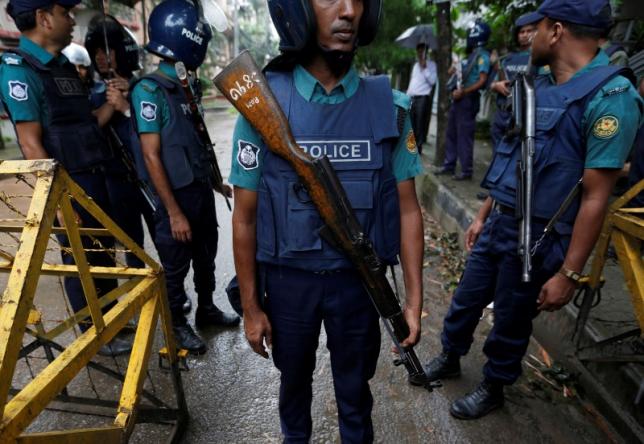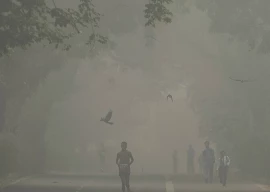
Asadul Islam, also known as Arif, was a senior leader of the banned group Jamayetul Mujahideen Bangladesh (JMB), which the government has blamed for a deadly siege on an upmarket Dhaka cafe on July 1.
11 members of Dhaka cafe attack group slain
Bangladeshi security forces launched a crackdown against extremists following the cafe attack, which shook the image of Bangladesh as a moderate Muslim nation.
Since July, police have shot dead nearly 40 suspected extremists including JMB's new leader Tamim Chowdhury, a Canadian citizen of Bangladeshi descent who allegedly masterminded the cafe carnage.
Bangladesh's courts have also accelerated the prosecution of extremists, sparking concern among rights activists who say such actions may be politically motivated.
Attorney General Mahbubey Alam told AFP the government was "trying to fast-track all the militant-related cases", including bomb attacks on a court complex outside Dhaka, a cultural function in a northern town and a new year's festival in the capital.
Police spokesperson AKM Shahidur Rahman said there were "at least 64" extremists on death row and their appeals were being heard in the higher courts. But Human Rights Watch said there was no conclusive evidence the death penalty acted as a deterrent.
Bangladeshi police kill militant suspected in cafe attack
"When terror attacks happen, governments often feel under pressure to show that they are doing something," South Asia director Meenakshi Ganguly told AFP. "What is needed instead is careful investigation to identify and prosecute perpetrators with proper evidence."
JMB was founded in the late 1990s and seeks to impose sharia law on Bangladesh, a Muslim majority but officially secular nation of 160 million people.
It shot to prominence when it carried out a coordinated bombing attack in August 2005, that involved more than 400 small blasts across the country.
Arif's body was buried amid tight security in his home town shortly after his execution, local police chief Pankaj Chandra Roy told AFP.

















COMMENTS (1)
Comments are moderated and generally will be posted if they are on-topic and not abusive.
For more information, please see our Comments FAQ